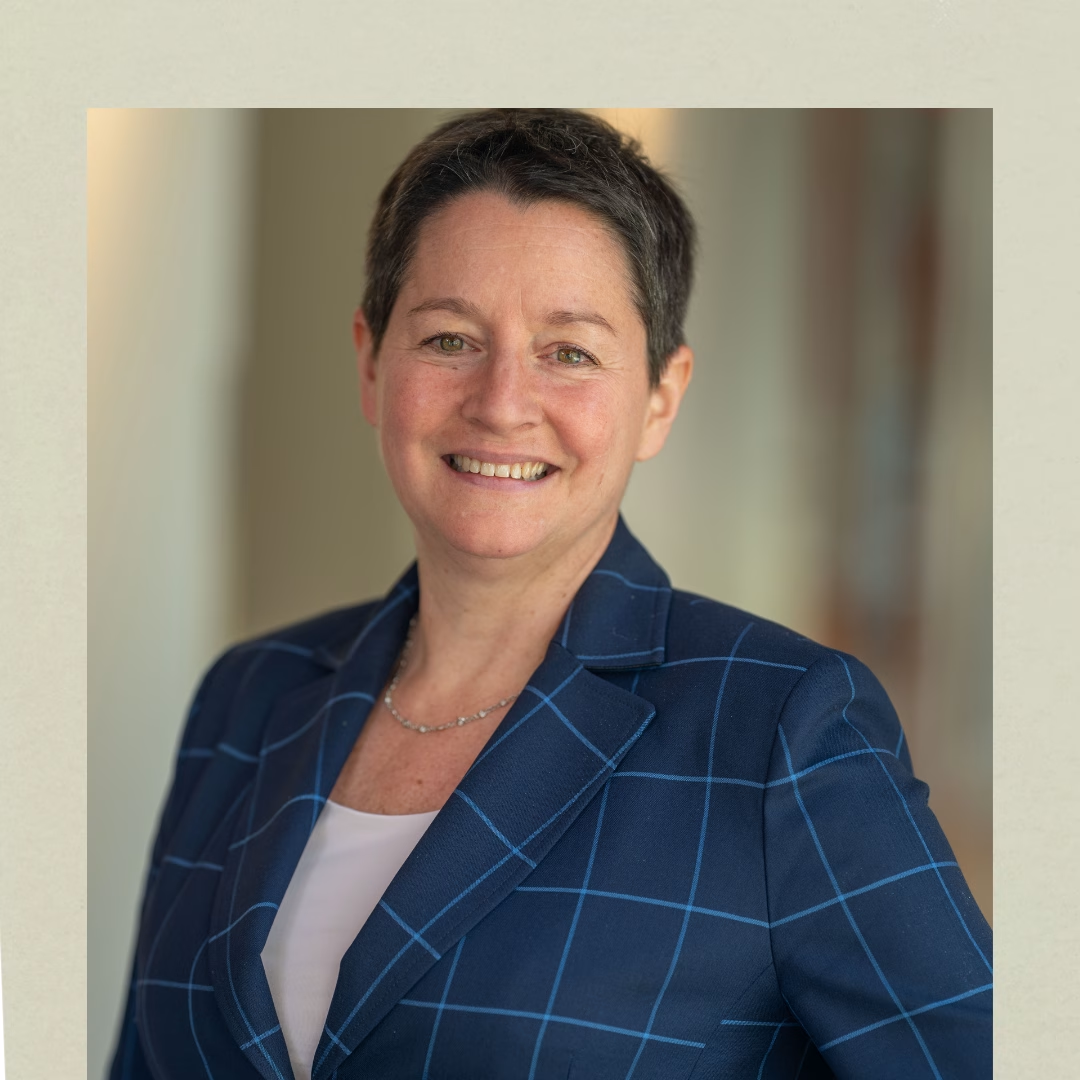I talk to Sonja Wehsely, Executive Vice President at Siemens Healthineers, about empowerment – and how it can act as an inner attitude, a leadership principle and a basis for sustainable performance. Based in Vienna, Wehsely is responsible for the medical technology specialist’s business success in 30 markets in Central/Eastern Europe and Central Asia.
How do you yourself feel about empowerment?
Sonja Wehsely talks about how deeply the topic of empowerment is anchored in her attitude and understanding of leadership. She makes a clear distinction between her own self-empowerment and her responsibility as a manager to empower others.
“Empowerment starts with yourself,” says Sonja Wehsely: for her, everything starts with your own inner drive. “Only those who are in the driver’s seat of their own lives, who have confidence in themselves and make decisions in accordance with themselves, can authentically empower others.” In her view, empowerment is not just a management tool, but a fundamental attitude that becomes tangible when people have confidence in themselves and, as a result, also pull their colleagues and teams along with them.
She emphasizes that empowerment is a central task of leadership – even if it is not explicitly stated in the job description. For her, leadership means helping people to surpass themselves, to dare to do things that they would not have allowed themselves to do before. She finds this enriching – both for the employees and for herself. “For me, empowerment is not a task that burdens me, but one from which I draw strength.”
For Sonja Wehsely, authenticity is a central foundation for empowerment. She makes it clear that she does not play any roles – neither on stage nor in the company. Those who are at peace with themselves can lead honestly, be present and at the same time remain approachable. She believes that this authenticity is not only possible in demanding roles, but also necessary in order to appear credible and build lasting trust.
She is aware that empowerment and performance are not mutually exclusive. On the contrary: Sonja Wehsely makes it clear that kindness should not be confused with weakness. Clarity in expectations, consistency in leadership and enjoyment of performance – for her, they all belong together. “For me, empowerment does not mean dissolving hierarchies, but rather giving people responsibility within clear roles – with a view to results, cooperation and self-development.”
She also lives this principle in mentoring. She has been involved in global initiatives to promote diversity for many years and uses her experience to support others – not by prescribing solutions, but by helping people find their own solutions. Her motto: “I don’t explain the world to anyone – I help them discover their own world,” says Sonja Wehsely
She also thinks empowerment in the context of career development. No one is responsible for another person’s career – that is in the hands of each and every individual. Managers can provide impetus, open doors, support – but not act on behalf of others. Empowerment means shaping things yourself instead of waiting.
Are there cultural differences for empowerment that you experience in your international role?
Ms. Wehsely emphasizes that cultural differences play an important role in dealing with empowerment and participation. Cultural differences influence how empowerment is perceived and practiced. “In some countries, people are very quick to come forward when it comes to new tasks or additional responsibilities – in others, they tend to be hesitant or not at all. This is not only due to the corporate culture, but also to national or cultural influences .”
She observes that some people – due to their culture, age or gender, for example – are more reticent when it comes to getting involved or seizing a career opportunity. It is therefore important to give space to the “quiet ones” and to open up opportunities for them in a targeted manner.
In a global company that operates across many national borders, it is essential to be aware of these cultural differences and to practice “inclusive leadership”. “This means keeping different mentalities, communication styles and expectations in mind and actively integrating them into management practice.”
How do managers live empowerment in the company?
For Sonja Wehsely, empowerment is a central element of effective leadership – but also a topic that needs to be viewed in a differentiated way. Particularly in leadership, it is also about the responsibility to specifically support others. Sonja Wehsely emphasizes: ” People are different – and this is precisely the key to good leadership. Some shout “here” loudly, others are quiet and reserved. Making the quiet ones visible, encouraging them in a targeted manner and involving them in development steps ” is essential for them.
At the same time, empowerment needs a framework: Siemens Healthineers has a corporate culture in which participation is encouraged, decisions are made with reflection and careers are not thought of as automatic, but as a conscious choice. “Not everyone has to take on a leadership role to be valuable,” says Sonja Wehsely. For many, a lateral development path is just the right thing – and it is precisely this space that she opens up in her leadership work. With clarity and open discussions, she creates orientation: ” Who wants to shape things? Who feels comfortable and capable in their role? Who strives for change – and who doesn’t ?”
Sonja Wehsely believes it is important to listen carefully when talking about career development. Some people want to move up because they are driven by a belief in advancement. “If I see that this career step is too demanding and the person is not fulfilling their role well, instead of leading to happiness and satisfaction, I also see it as my job to say ‘stop’.” Her comparison is apt: “Youcan’t fit a quarter into an eighth of a glass.” This is sometimes difficult, but people are grateful in the long term.
We come back to authenticity. Sonja Wehsely lives out in her leadership role what she also demands from other managers: clear principles, transparent decisions and open cooperation at eye level. She is convinced that only managers who know themselves and are at peace with themselves can honestly empower others – and also communicate difficult decisions in a comprehensible way. Her attitude: leadership does not mean cultivating friendships, but rather enabling performance together with respect, clarity and trust.
She does not see empowerment as the opposite of performance, but as a prerequisite for it. For her, the joy of performance, resilience and personal responsibility are key drivers of success – both individually and as part of a team. For Sonja Wehsely, leadership means “creating spaces in which people can grow, but also being honest when something is not right“. She talks about clear expectations, active support and consciously selecting people who want to lead – not because it is the next logical step, but because it suits their personality and inner attitude.
For Sonja Wehsely, empowerment is not a soft factor, but a key prerequisite for economic success. She is convinced: “A culture in which people think, shape and contribute is not created through control, but through security, role models and honest dialog.” Companies that recognize this develop a strength that extends far beyond processes and structures – they develop an impact that lasts.
It is particularly important to her to distribute opportunities fairly: Positions are advertised internally in order to reach not only the obvious, but also the “quiet talents”. Decisions are made together with HR and various selection committees in order to question unconscious assumptions. “My aim is to make decisions on an equal footing – based on performance, potential and fit, not habit or proximity.“
For her, empowerment does not mean abolishing hierarchies, but rather clearly naming responsibilities – and living leadership as a conscious task. This is the only way to create teams in which performance, joy and growth are possible – not despite, but because of a clear leadership culture.
How does she deal with challenging situations herself?
Sonja Wehsely emphasizes that she does not want to give any general tips with her own approach. Everyone has to find out for themselves what is good for them. She uses it herself:
- Sport: Exercise is an absolute must, even if it’s only possible early in the morning. She would rather get up at 5:30 a.m. to go for a run or to the gym than miss out – even on business trips. “Sport is a key way for me to stay in balance,” she says.
Set realistic expectations: Sonja Wehsely speaks openly about the fact that there are phases in life – e.g. with young children – when self-care has to look different. Sport or me-time were hardly possible for her during this time, and she would like to take this pressure of “having to do everything” away from younger colleagues in particular.
Sleeping: She consciously makes sure she gets enough sleep and goes to bed when she is tired – even if that is sometimes as early as 9 pm. For her, her own decision is an expression of self-care.
Good relationships: Friendships and a stable partnership are another source of strength for them.





